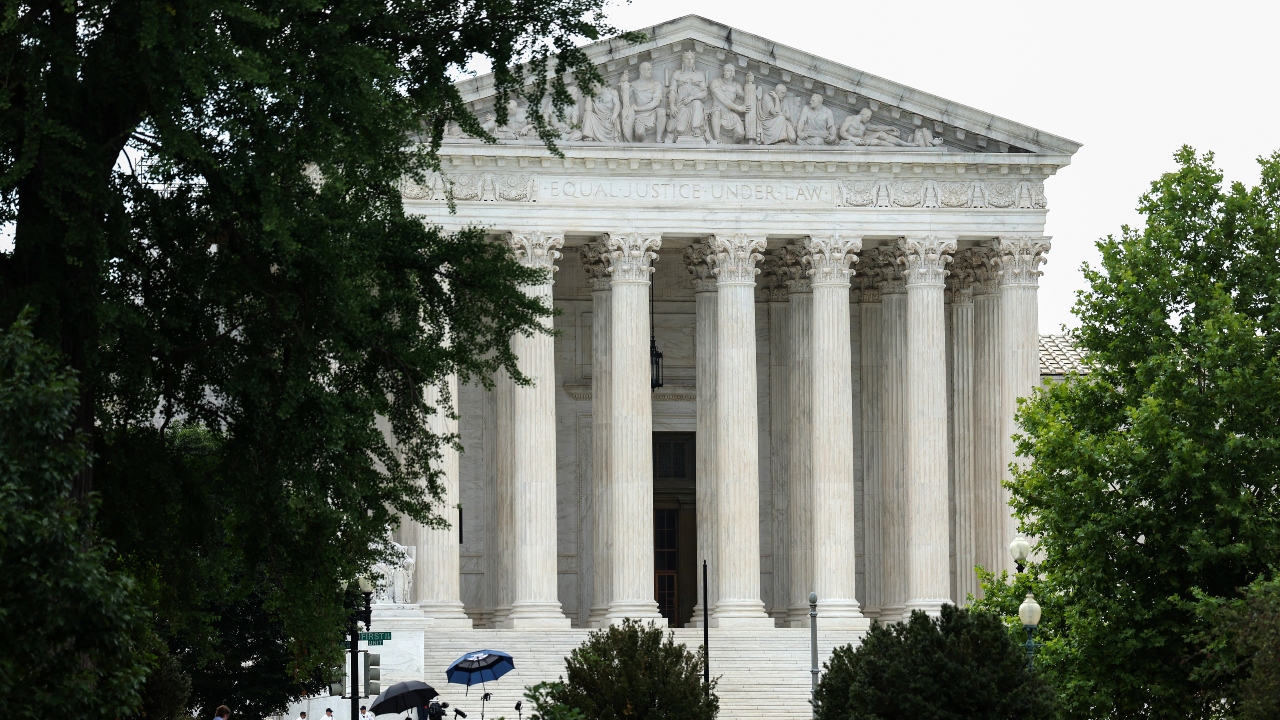We bring news that matters to your inbox, to help you stay informed and entertained.
Terms of Use and Privacy Policy Agreement
WELCOME TO THE FAMILY! Please check your email for confirmation from us.
Politics
Take a look at some rulings in cases that stunned the Black community.
This year, the U.S. Supreme Court rendered several decisions that will disproportionately impact the Black community for decades to come and have stifled opportunities for minorities to close in on the racial wealth gap.
As a result, some Black voters have lost faith in the majority conservative court and believe justices put the interests of wealthy donors ahead of public interest.
Here are some cases that had outcomes that stunned Black Americans.
The Supreme Court rolled back affirmative action in the college admissions process
In a groundbreaking decision, the court overturned the use of affirmative action in the college admissions process on June 29.
The decision came after Students for Fair Admissions filed a pair of lawsuits contending that the University of North Carolina at Chapel Hill and Harvard University granted Black and Latino students preferential treatment in admission. As a result, they claimed, white and Asian American students faced discrimination when applying to both institutions.
Chief Justice John Roberts penned a decision with the help of the other five conservative justices to strike down affirmative action at Harvard and the University of North Carolina. The justices argued that institutions nationwide should not be forced to use race as a factor when considering prospective applicants.
Leslie Williams, a higher and postsecondary education lecturer at Teachers College, Columbia University, previously told theGrio: “There isn’t evidence” to support that minority students are admitted to predominantly white institutions based solely on their race.
“The students who are admitted are capable of doing the work,” he said, adding that affirmative action was created to redress “racial disparities, inequality [and] subordination.”
Williams told theGrio affirmative action opposers fail to criticize white and wealthy Americans who he believes benefit the most from the college admissions process through programs such as “legacy admissions and athletic admissions.”
“There are other groups that get preferences,” he stated, “but the issue of racial preference is something that sticks to a particular set of folks that they just won’t let it go.”
The Supreme Court axed President Biden’s student loan debt forgiveness program
On June 30, the majority conservative court ruled against President Joe Biden’s student loan debt forgiveness program that aimed to bring relief to millions of student borrowers.
In August 2022, the president proposed a program that would eliminate upwards of $20,000 in debt for eligible borrowers. However, this summer, the court ruled 6-3, with the conservative justices contending that the HEROES Act did not give the Biden-Harris administration authorization to cancel student debt.
Democratic strategist Ameshia Cross previously told theGrio that Biden’s program should not have been rejected by the court because student debt “prevents people or helps them put off things like buying a home, things like buying a car … moving out of their parents’ home.”
Noel Cymone Walker
TheGrio Staff
Ashlee Banks
Associated Press
Deron Snyder
Associated Press
Associated Press
Associated Press
She added that the student loan debt crisis has disproportionately impacted Black women.
“Black women [are] saddled with this absorbing amount of debt that they cannot climb over,” she said. “[Black women] in the workplace earn less on average than our white male counterparts.”
Jonathan Petts, co-founder of Upsolve, a nonprofit organization that aims to assist citizens with their finances, previously told theGrio that Black and brown Americans would have greatly benefited from Biden’s student loan debt relief program.
“Many borrowers are struggling to just put food on the table … Borrowers took out student loans with an implied promise that they’d be able to get jobs from this debt after college,” he said.
“That hasn’t happened because of COVID and our economy,” Petts maintained.
The Supreme Court ordered Alabama’s GOP to redraw ‘discriminatory’ congressional maps
In September, the court ordered a special master to redraw Alabama’s congressional map to make it more inclusive for Black voters.
The Supreme Court found that Alabama’s map violated the constitutional rights of Black Alabamians and instructed a special master to include a second district in which Black residents make up the majority. If the map remained in place, Black voters would have a challenging time electing a candidate of their choice.
House Minority Leader Hakeem Jeffries previously told theGrio: “Extreme MAGA Republicans in Washington, in Alabama and throughout the country understand that they have difficulty winning elections or upholding their majority in the House without gerrymandering congressional districts illegally.”
Svante Myrick, president of People For the American Way, previously told theGrio that Alabama’s GOP is “presenting as many hurdles as they can … to limit Black voters in the upcoming election.”
“Fortunately, the judicial system overruled them,” he said.
“I believe there will be other decisions,” Jeffries has told theGrio, “to show that the Republican efforts to engage in unlawful gerrymandering, particularly as it relates to communities and districts of color, will be stopped dead in its tracks.”
The new Alabama congressional map that includes a Black majority district and a near-majority Black district will be used in the 2024 elections and could result in a Democratic victory.
Never miss a beat: Get our daily stories straight to your inbox with theGrio’s newsletter.
STREAM FREE
MOVIES, LIFESTYLE
AND NEWS CONTENT
ON OUR NEW APP

